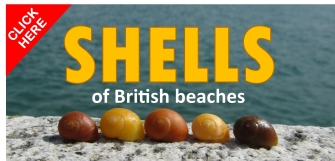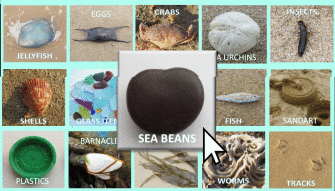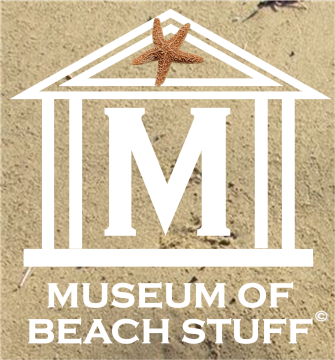

Museum floor plan
| Vintage Plastics Gallery |
Pottery and glass Gallery |
|
gallery closed for development |
|
|
gallery closed for development |
Add your |
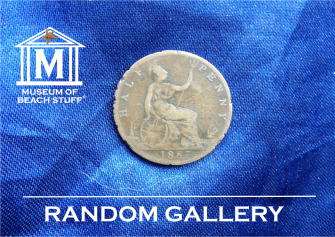
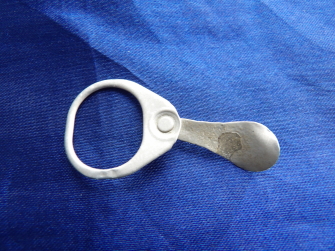
Ring pull. Pre-1990
In the UK, detachable ring pulls were replaced on pop cans by 1989 and on beer cans in the following year.
Found: various

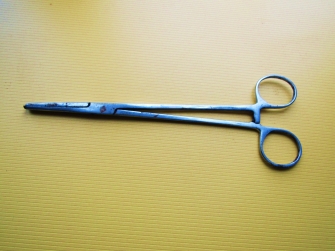
Medical forceps c1940s
Found these medical forceps used to stem building buried deep in the dunes - dunes on which US troops trained for D-Day. Were they lost from a military first aid kit?
Found: Woolacombe, North Devon. 2020

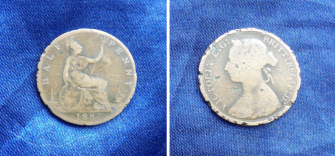
Half Penny coin. 1887
Queen Victoria was already 68 in 1887. Her reign was to last just fourteen more years. This portrait, first put on coins in 1860 is known as the bunhead portrait. It was not replaced until 1894. That the coin is still so clear after 137 years in the sea / sand is incredible!
Found: Charlestown 2024

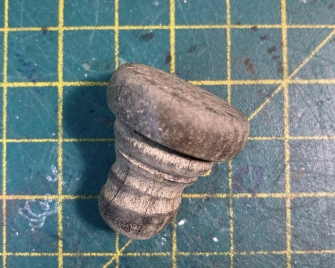
Wooden bottle stopper c. 1900s?
Wood bottle stoppers were an early way of sealing glass bottles. Glass, wood and vulcanite / ebonite (see below) were all used to seal bottlrs of ale, cider, water etc. The wood and vulcvanite stoppers had a screw thread for glass bottles which had a screw thread inside the bottle neck. In 1890, stoppers made of Lygnum vitae, a very hard wood, were invented as they were less likely to swell and distort when they came into contact with the liquid. Is this why this stopper has been preserved so well despite being in sea water?
Found: Seth Draper. Porthcawl. c 2024

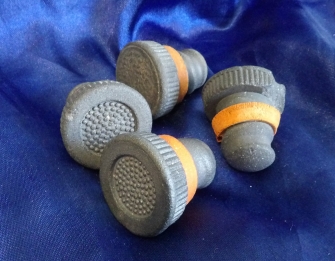
Vulcanite bottle stoppers screw stoppers
Vulcanised rubber was invented by the American Charles Goodyear and he patented it in 1846. His rubber developments went on to give him a name in tyres. Vulcanite is hard, durable rubber (hence it is still turning up on beaches) made from heat-treated India rubber.
Some thirty years later, an English inventor, looking for ways to keep beer fresh, who invented glass screw top bottles, into which the vulcanite stoppers could be screwed, with a strip of red India rubber to ensure a leak-free seal. The difference between Barrett's beer bottles and moden screw tops is that Barrett's thread was on the inside of the bottle neck, not the outside as it is now.
Found: North Devon. Various
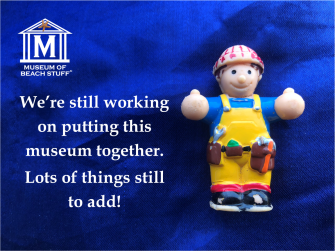
William Thomas and Co. Ltd., Poole Brickworks, Wellington
1861-1966

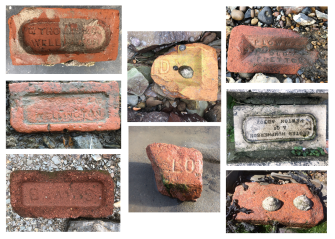
Bricks with words and letters on.
Click here for bits of beach bricks and for help with deciphering the wording.

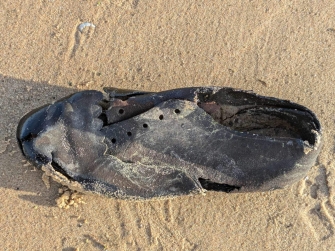
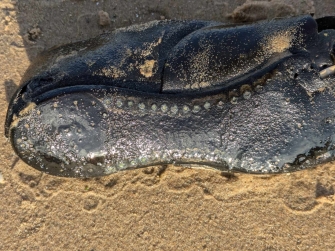
Leather shoes
Parts of shoes, or even while shoes can wash up. There is a chance that leather shoes can have significant age to them. Clues such as the holes where the sole were nailed or stitched to the shoe can mean that the shoes was made in the 1900s or earlier. Style can also date a shoe for a fashion historian.
Found: Eileen, Formby.
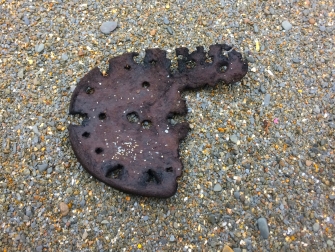
Above: a piece of leather sole with nail or stitching holes.

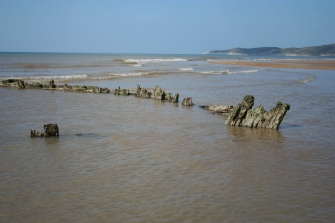
Remains of a wooden boat
At the times of spring tides when the tide is extremely low, it can sometimes be possible to see the remains of boats sticking out of the sand.
Seen: Woolacombe September 2014

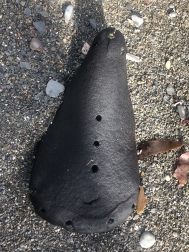
Leather bike seat
Early bicycles had tensioned leather saddles. This leather seat has held its shape in the sea despite no longer being attached to its metal frame. The tell-tale holes are where the saddle was attached to the springed frame. They looked uncomfortable and they were uncomfortable and so were largely replaced by plastic saddles (which, if you are lucky, have foam padding) since the 1970s.
Found: North Devon 2024


